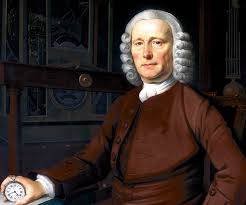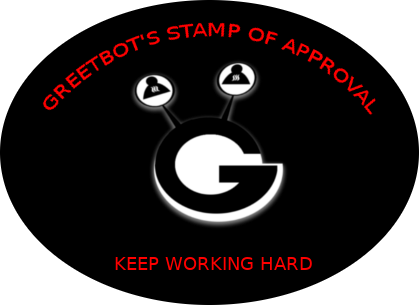Why do people spend a lot of money these days to attend colleges and universities only to learn things most of which was discovered by men who did not attend universities?

This story of a village carpenter, John Harrison, buttresses the point that you may not really need a college or university certificate to attain some monumental and epoch-making discoveries. By early 18th century, there was then a quest to get a precise way of calculating the longitude to enable sailors calculate accurately how far they have sailed from the east or west. With that existing problem lots of accidents were happening on sea.
"For example, on October 22, 1707, a squadron of British naval ships sailed toward the English Channel. But they miscalculated their position. The result? Four ships were wrecked on the Isles of Scilly, an island group in the Atlantic Ocean southwest of Land’s End, England. Nearly 2,000 men perished.
Consequently, in 1714 the British Parliament offered a prize of 20,000 pounds to anyone who could accurately determine longitude at sea. Today that prize would be equivalent to several million U.S. dollars.
Tantalizingly Difficult
Ascertaining longitude was extremely difficult because it required precise timekeeping. To illustrate: Imagine that you live in London. At noon you receive a phone call from a person who lives at the same latitude as you, but her clock reads 6:00 a.m. on the same day. This puts her six hours behind you. You know your geography, so you rightly deduce that she lives in North America, where the sun is just coming up. Now imagine that you know her precise local time to the very second, not according to a broad time zone, but according to her actual position in relation to the sun. You could calculate her longitude very accurately.
Centuries ago, a navigator anywhere on earth could determine noon locally by simply looking at the sun. If he also knew the time back home accurately enough, he could plot his longitude to within some 30 miles [50 km]. That, in fact, was the accuracy required at the end of a six-week-long voyage to win the aforementioned prize.
The challenge, however, was to know the precise time back home. The navigator could carry along a pendulum clock, but that would not work on a ship tossed by high seas, and clocks with springs and wheels were still crude and inaccurate. Clocks were also influenced by changing temperatures. In view of the formidable obstacles, the expression “discovering the longitude” came to refer to any problem that seemed insurmountable.
A Carpenter Accepts the Challenge
A village carpenter named John Harrison, from the Lincolnshire village of Barrow Upon Humber, decided to tackle the longitude problem. In 1713, before he was 20 years old, Harrison built a pendulum clock almost entirely of wood. Later, he invented mechanisms to reduce friction and compensate for temperature changes. At that time the world’s finest watches erred by a minute a day, but Harrison’s clocks were accurate to one second a month.*
Harrison then turned his attention to the challenges of keeping accurate time at sea. After pondering the matter for four years, he set off for London to submit his proposal to the Board of Longitude, which was empowered to award the prize. There Harrison was introduced to leading watchmaker George Graham, who gave him a generous, interest-free loan to build a timepiece. In 1735, Harrison presented the world’s first accurate marine chronometer before a delighted Royal Society, a body of the most distinguished scientists in Britain. The clock weighed 75 pounds [34 kg] and gleamed with brass.
Harrison and his clock were sent on a sea trial to Lisbon—not the West Indies, as required to win the prize—and the device performed admirably. He could have demanded an immediate cross-Atlantic trial to demonstrate that his clock was worthy of the prize. In fact, at the first meeting of the Board of Longitude, the only one who criticized the clock was Harrison himself! A perfectionist, he felt that he could improve the design. So he merely asked for a little money and more time to build an even better timepiece.
Six years later Harrison’s second chronometer, which weighed 86 pounds [39 kg] and included several improvements, won the full support of the Royal Society. But Harrison, now 48 years old, was still not satisfied. He returned to his workshop and spent the next 19 years toiling on a third, quite different, design.
While working on his hefty third model, Harrison discovered something quite by accident. A fellow clockmaker built a pocket watch based on a design by Harrison. It had always been assumed that large clocks would be more accurate than pocket watches. But Harrison was amazed at the accuracy of the new device. So when a cross-Atlantic test was finally arranged in 1761, he placed his full confidence, not in his third design, but in his fourth, a three-pound [1 kg] chronometer based on the pocket-watch design. Harrison allegedly stated: “I heartily thank Almighty God that I have lived so long, as in some measure to complete it.”
Within a few years, accurate marine chronometers could be purchased for 65 pounds. Yes, the impossible had become reality, thanks largely to the brilliance and dedication of a village carpenter."
Self education is the key. If John Harrison can impress his footsteps on the sand of history during early 18th century when there was no YouTube videos or search engines like Google and the likes, then what about you today?
Source: Awake 5/10 p. 22
Hi. I am @greetbot - a bot that uses AI to look for newbies who write good content.

I found your post and decided to help you get noticed.
I will pay a resteeming service to resteem your post,
and I'll give you my stamp of automatic approval!
Downvoting a post can decrease pending rewards and make it less visible. Common reasons:
Submit
Resteemed by @resteembot! Good Luck!
The resteem was payed by @greetbot
Curious?
The @resteembot's introduction post
Get more from @resteembot with the #resteembotsentme initiative
Check out the great posts I already resteemed.
Downvoting a post can decrease pending rewards and make it less visible. Common reasons:
Submit